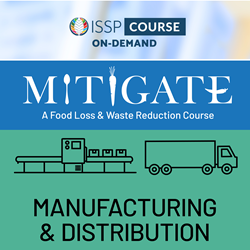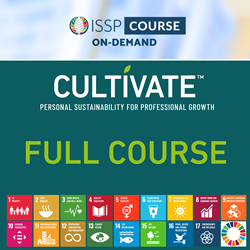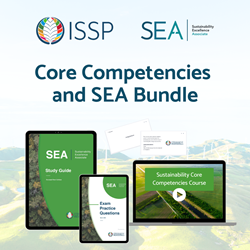Mitigate - A Food Loss & Waste Reduction Course - Manufacturing & Distribution
On-Demand Courses
Course Description
Midstream operations like processing, packaging, warehousing, and transportation are critical nodes in the food system and key points where food loss and waste occur. This course explores how inefficiencies, poor handling, labeling errors, spoilage, and damage during distribution all contribute to loss and what companies can do to address it.
You’ll gain insight into real-world challenges and solutions in manufacturing and logistics, with examples from food companies tackling loss head-on. The course offers practical strategies: standard operating procedures to prevent damage and overproduction, better inventory and cold chain management, employee training, and options for reuse, donation, and diversion.
This course draws on best practices from pilot programs created for the Pacific Coast Food Waste Commitment and the U.S. Food Waste Pact—two initiatives built in collaboration with major manufacturers, retailers, and food service organizations.
Whether you're focused on efficiency, sustainability, or both, this course equips professionals to understand, reduce, and redirect waste within manufacturing and distribution systems.
This course consists of 4 modules, drawn from the full 9-module Mitigate course on Food Loss & Waste Reduction:
-
Introduction to Food Loss & Waste
-
Food Loss & Waste in Manufacturing & Distribution
-
Food Loss & Waste in Households
-
Action at Scale
Total estimated time to complete the course is 2–3 hours. Course access will be provided by the TripleWin team within 48 hours of purchase. Access to this course will be available for one (1) year from the date of purchase.
About Mitigate: A Food Loss & Waste Reduction Course
Food waste is a leading cause of climate change—and one of the most solvable. Mitigate equips professionals with the knowledge, insights, and strategies to reduce food loss and waste across the food system. Developed by TripleWin Advisory, the course draws on research and insights from groundbreaking pilot programs created for the Pacific Coast Food Waste Commitment and the U.S. Food Waste Pact. These initiatives, built in collaboration with leading manufacturers, retailers, and food service companies, provide a foundation of proven strategies that learners can apply in their own work.
Through compelling videos, case studies, and interactive tools, this self-paced course connects learners with real-world solutions from farms to households. You’ll explore examples from farms, manufacturing, distribution, grocery retail, food service, quick service restaurants, and hospitality settings. By the end of the course, you’ll be prepared to take meaningful action on food waste in both your professional and personal spheres.
The full Mitigate course consists of 9 self-paced modules. Each module takes about 30-45 minutes to complete (4-7 hours total). Access to this course will be available for one (1) year from the date of purchase.
-
Module 1: Introduction to Food Loss & Waste
-
Module 2: Farms
-
Module 3: Manufacturing & Distribution
-
Module 4: Food Service
-
Module 5: Quick Service Restaurants
-
Module 6: Grocery Retail
-
Module 7: Hospitality
-
Module 8: Household
-
Module 9: Action at Scale
Whether you work inside a company or support them from the outside, this course will help you identify opportunities to cut costs, unlock value from wasted resources, and accelerate sustainability progress. For companies in the food value chain, Mitigate supports operational goals while empowering employees and partners to contribute to measurable waste reduction.
Global Impact
This course supports UN Sustainable Development Goal 12.3: "By 2030, halve per capita global food waste at the retail and consumer levels and reduce food losses along production and supply chains."
What You’ll Learn
-
Understand how food loss happens during processing, storage, and logistics
-
Learn practical strategies to reduce waste and improve efficiency
-
Examine case studies and solutions implemented in real operations
-
Identify circular opportunities through donation, upcycling, and diversion
Who is the Course For?
-
Professionals in food manufacturing, logistics, and supply chain management
-
ESG leads and operations managers seeking cost savings and emissions reductions
-
Consultants and sustainability professionals working with midstream food operations
Certificate
Following the successful completion of the course, students will receive a Certificate of Completion, indicating knowledge of core sustainability concepts and best practices.
Completing this course earns 1 CEU credit for SEA and SEP credential holders.
Refund policy
ISSP is not able to offer refunds once you have purchased access to your course, resource, or membership for any reason, including change of personal financial standing, health, or inability to access to our site. If you are dissatisfied with your purchase or are otherwise unable to access your purchased product/service in its entirety, you may read our FAQs or reach out to technical support.
When purchasing a product/service from ISSP, you agree and understand that changing your mind about the product/service, failing to follow through or understand the details of the purchase, not experiencing the results expected or desired, or experiencing any other similar situations does not entitle you to a refund.
*This course is being offered via a partnership with TripleWin Advisory. Please note that by purchasing this course you are consenting to ISSP sharing your name and email address with TripleWin Advisory in order for them to provide access to the course. Your information will not be used for any other purpose.




